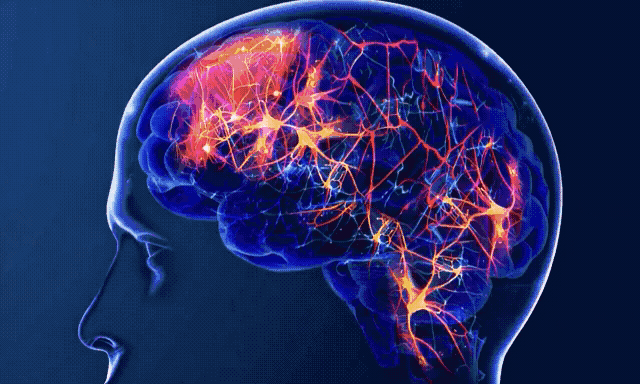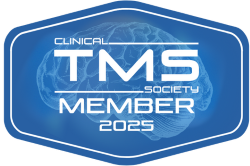Why We Treat Physical Health Better Than Mental Health
July 15, 2025

I had this conversation with a colleague last week that's been bothering me ever since.
We were grabbing coffee between patients, and she mentioned her mom had been struggling with depression for months. "She finally went to her doctor," my colleague said, "and he told her to try exercise and maybe think about therapy. Meanwhile, when she had chest pain last year, they had her in cardiology within hours."
I just stared at her. Because this is exactly the problem.
We've somehow created this bizarre two-tier system where physical symptoms get immediate medical attention and mental symptoms get lifestyle advice. And I'm tired of pretending this makes sense.
The Daily Reality That Makes No Sense
Here's what I see in my practice every single day:
Patient comes in with high blood pressure. We order labs, start medication, schedule follow-up. Standard protocol. No one suggests they just "try to relax more."
Same patient mentions they've been feeling depressed. Suddenly it's "have you tried meditation?" and "maybe consider counseling" and "let's see how you feel in six months."
Last month, I had a woman tell me she'd been having panic attacks for two years. TWO YEARS. But she kept thinking it was "just stress" because that's what everyone told her. Meanwhile, if she'd been having chest pain for two years, she'd have been in the cardiac ICU.
The kicker? Her brain MRI for headaches was covered without question. But when I mentioned TMS therapy for her anxiety, insurance wanted three months of documentation proving other treatments had failed.
A brain scan to rule out problems we probably won't find? No problem. Brain treatment for problems we definitely found? Sorry, you need to suffer more first.
When Your Own Patients Have Been Trained to Minimize Their Pain
This part breaks my heart.
Patients come in and apologize for bringing up their depression. They actually apologize. Like feeling suicidal is somehow less important than feeling dizzy.
"I know this probably isn't medical," they say. As if the brain isn't an organ. As if neurotransmitters aren't chemicals. As if mood regulation isn't biology.
I had a mom last year who spent six months going to different doctors for headaches, fatigue, and stomach problems. Every test came back normal. Finally, in her seventh appointment, she whispered, "I think I might be depressed."
Seven appointments. She went to seven different doctors trying to find a physical explanation for what was clearly a mental health condition because she'd been trained to think that was more "legitimate."
By the time she admitted she was struggling emotionally, she'd spent thousands on unnecessary tests and was convinced she was "crazy" because nothing showed up on scans.
The Insurance Game That's Rigged Against Mental Health
Don't even get me started on insurance.
They'll cover a $50,000 surgery without blinking. They'll pay for physical therapy for months. They'll approve expensive imaging studies for vague symptoms.
But TMS therapy for severe depression? "Has the patient tried four different antidepressants?" "Do you have documentation of therapy failure?" "Can you provide six months of treatment history?"
I literally had an insurance reviewer tell me that a patient needed to be "treatment resistant" longer before they'd consider covering our ONE-DAY protocol. Treatment resistant LONGER. Like suffering is a prerequisite for accessing effective care.
Meanwhile, this same patient's insurance covered her husband's knee arthroscopy after two weeks of conservative treatment. No one made him fail multiple physical therapy attempts. No one required him to prove he was "resistant" to other treatments.
The brain gets treated like it's somehow less real than the knee.
What Actually Happens When We Get This Right
Here's the thing that keeps me fighting these fights every day—when we actually treat mental health like medical health, the results are incredible.
I think about Maria, who came in after three years of "managing" her depression with various antidepressants that barely worked. She was functional but not living. Going through the motions but not feeling anything.
Her primary care doctor had been slowly increasing medication doses, trying combinations, switching between brands. All perfectly reasonable approaches that just weren't working for her brain.
After our KIND ONE-DAY TMS Protocol, she called me a week later crying. Not because she was sad, but because she'd laughed at her daughter's joke for the first time in months. Real laughter. The kind that comes from somewhere deep.
"I didn't realize how much I'd been missing," she told me. "I thought feeling nothing was better than feeling bad. I didn't know feeling good was still possible."
That's what happens when we use actual neuroscience instead of hoping pills work.
The Personal Cost of This Backwards System
I see the human cost of this every day.
Parents who can't enjoy their kids because untreated anxiety steals every moment. Professionals who used to love their work but now dread Monday mornings. Teenagers who think there's something fundamentally wrong with them instead of understanding they have treatable medical conditions.
And the families. The spouses who've been walking on eggshells for years. The children who've learned to be quiet when mom or dad is having a "bad day." The relationships that slowly erode under the weight of untreated mental illness.
All because we've decided that brain problems are somehow different from heart problems or lung problems or any other medical condition.
Why This Is Personal for Me
I'll be honest—this hits close to home because I've been on both sides of it.
Years ago, I was the doctor prescribing antidepressants and hoping they'd work. Making referrals to therapists with three-month waiting lists. Telling patients to "be patient" while they suffered.
I believed in the system because it was all I knew. Until I started learning about TMS and realized we'd been doing things the hard way for no good reason.
The first patient I treated with TMS was a nurse who'd been struggling with depression for five years. She'd tried everything. Was about to take early retirement because she couldn't handle the emotional demands of her job anymore.
After treatment, she looked at me and said, "Why didn't anyone tell me about this sooner?"
I didn't have a good answer then. I still don't.
But I decided that day that I'd never let another patient suffer unnecessarily because we were too stuck in old thinking to use better tools.
The Science That Changes Everything
Here's what's frustrating about the resistance to treating mental health medically—the science is incredibly solid.
We can see depression on brain scans. We can measure anxiety in neural activity patterns. We can target specific brain circuits with precision treatments like TMS.
Depression isn't mysterious. It's not a character flaw. It's not "all in your head" in the way people mean when they say that. It's a specific malfunction in specific brain regions that we can identify and treat.
When we use TMS, we're literally stimulating the areas of the brain that aren't working properly. It's like having a pacemaker for your emotional regulation system.
But somehow this gets called "experimental" while throwing different medications at someone and hoping something sticks is called "standard care."
What Needs to Change (And It's Already Starting)
The good news is that things are changing. Slowly, but they're changing.
More doctors are learning about TMS. More patients are asking for it. More insurance companies are starting to cover it without the ridiculous hoops.
But we can't wait for the system to evolve. Patients are suffering right now. Families are falling apart right now. People are losing years of their lives right now.
At KIND TMS, we decided to practice the future of mental health care today. Evidence-based. Precision-targeted. Designed around how people actually live.
Our ONE-DAY protocol means you don't have to choose between getting better and keeping your job. You don't have to rearrange your entire life around treatment. You can get the same results in one intensive day that traditional approaches take weeks to deliver.
The Bottom Line
Your brain is an organ. When it's not working right, that's a medical problem that deserves medical solutions.
Not moral judgment. Not lifestyle lectures. Not years of trial-and-error hoping something eventually works.
Medical intervention. Advanced technology. Evidence-based treatment. The same standard of care you'd expect for any other medical condition.
The woman whose mom I mentioned at the beginning? She brought her in to see us last month. After our treatment protocol, her mom called to thank me. Not for curing her—I don't cure anybody—but for treating her depression like the real medical condition it is.
"I feel like I got my life back," she said. "I didn't realize how much energy I'd been spending just trying to survive each day."
That's what's possible when we stop treating mental health like it's somehow separate from health and start applying the same medical standards we use for everything else.
The tools exist. The science is solid. The only question is whether we're brave enough to use them.

Meet the Author
Dr. Georgine Nanos, MD, MPH
Founder of Kind Health Group







